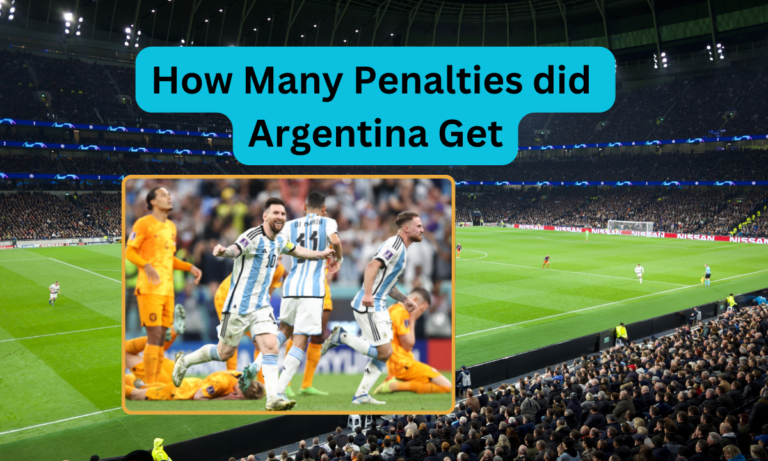England’s Quest for World Cup Glory: A Historical Perspective

Introduction
England’s Enduring Football Legacy:
Nestled in the heart of history, England stands as the cradle of modern football, nurturing a lineage that stretches back to the late 19th century. This nation’s storied footballing heritage finds its roots in the establishment of the Football Association (FA) in 1863, a pivotal moment that paved the way for an unprecedented revolution in sports. From these humble beginnings emerged a fervent love affair between a nation and the beautiful game, laying the cornerstone for what would burgeon into an indelible footballing legacy.
The inception of the Football Association marked more than the creation of an administrative body; it was a clarion call to a burgeoning passion. The vibrant embrace of football by England was swift and enduring, intertwining itself with the very fabric of societal identity. As the years unfurled, football’s influence transcended its sporting realm, embedding itself in cultural narratives and creating shared experiences that bound communities together. The grassy fields became hallowed arenas where dreams were forged, rivalries ignited, and legends carved.
The World Cup: A Tapestry of Global Football Brilliance:
Amid the vast tapestry of international football, the FIFA World Cup stands as the crown jewel, a resplendent celebration of the globe’s premier footballing prowess. The inaugural curtain was raised in 1930, unfurling a quadrennial spectacle that transcends sport, cascading into the realm of cultural phenomena. Within this dazzling showcase, national teams converge, the amalgamation of divergent languages, cultures, and stories, united by the singular language of football.
The World Cup, more than a mere tournament, is a grand narrative etched across stadiums and screens. For a month that stretches like an exquisite symphony, the world collectively holds its breath as narratives of triumph and heartache unfold. The final crescendo, the pinnacle of a month-long odyssey, culminates in the anointing of a world champion—a title that transcends borders, reverberating through generations. But the World Cup is more than just a coronation; it’s a mirror reflecting the evolution of the sport, a stage where tactical innovations, dazzling skill, and the human spirit converge.
In conclusion, England’s football legacy, birthed in the crucible of history, stands as a beacon of passion and tradition. From the foundation laid by the Football Association to the vibrant communities that have woven football into their cultural tapestry, England’s contribution to the sport remains timeless. And in the tapestry of global football, the World Cup shines as a testament to the universal language of the game, a showcase where the world’s finest talents etch their names in the annals of history.
This legacy, both national and global, is a living testament to the enduring magic of football—a game that transcends boundaries, time, and culture, uniting humanity in a symphony of emotions and aspirations.
The FIFA World Cup, often referred to as the pinnacle of international football, is a global event that captivates the hearts of fans around the world. Among the nations that have competed on this grand stage, England holds a storied history. In this article, we delve into England’s journey in the World Cup, exploring their achievements, challenges, and the burning question: How many World Cups has England won?
England’s World Cup Journey
1966 – Triumph on Home Soil
The only time England won the World Cup was in 1966, when they served as the tournament’s hosts. Under the leadership of Sir Alf Ramsey, the England team, led by Bobby Moore, secured a historic victory, defeating West Germany 4-2 after extra time in the final at Wembley Stadium. Geoff Hurst’s famous hat-trick remains an iconic moment in football history.
Near Misses and Challenges
While England’s 1966 victory stands as a crowning achievement, the nation has faced its share of challenges and near misses in subsequent World Cup tournaments. Notable campaigns include reaching the semi-finals in 1990 and the quarter-finals in 2002.
The Burning Question: How Many World Cups Has England Won?
England has won the FIFA World Cup once, in the historic 1966 tournament held on home soil.
Factors Influencing England’s World Cup Campaigns
Several factors have influenced England’s World Cup campaigns over the years:
Team Dynamics and Chemistry
Successful World Cup campaigns often hinge on strong team dynamics and a cohesive unit that works well together on and off the pitch.
Managerial Leadership
The role of the manager is crucial in shaping a team’s tactics, strategy, and mentality. Effective leadership can have a profound impact on a team’s performance.
Tournament Format and Draw
The format of the World Cup, including the group stage draw and potential knockout opponents, can play a significant role in a team’s journey.
(FAQs)
Q1: How many times has England reached the World Cup final?
As of my last update in September 2021, England has reached the FIFA World Cup final twice. They won the tournament in 1966 and were runners-up in 2018.
Q2: Who was England’s top goal scorer in the 1966 World Cup?
In the 1966 World Cup, Geoff Hurst was England’s top goal scorer. He famously scored a hat-trick in the final against West Germany.
Q3: When and where is the next FIFA World Cup scheduled?
As of my last update, the next FIFA World Cup is scheduled to be held in Qatar in 2022.
Conclusion
England’s journey in the FIFA World Cup is a testament to the nation’s passion for football and its enduring legacy in the sport. While the 1966 triumph remains the crowning achievement, England’s presence on the world stage continues to inspire generations of football fans. As the nation strives for future successes and endeavours to add to its World Cup tally, the memories of 1966 and the indomitable spirit of the Three Lions remain etched in football history.



